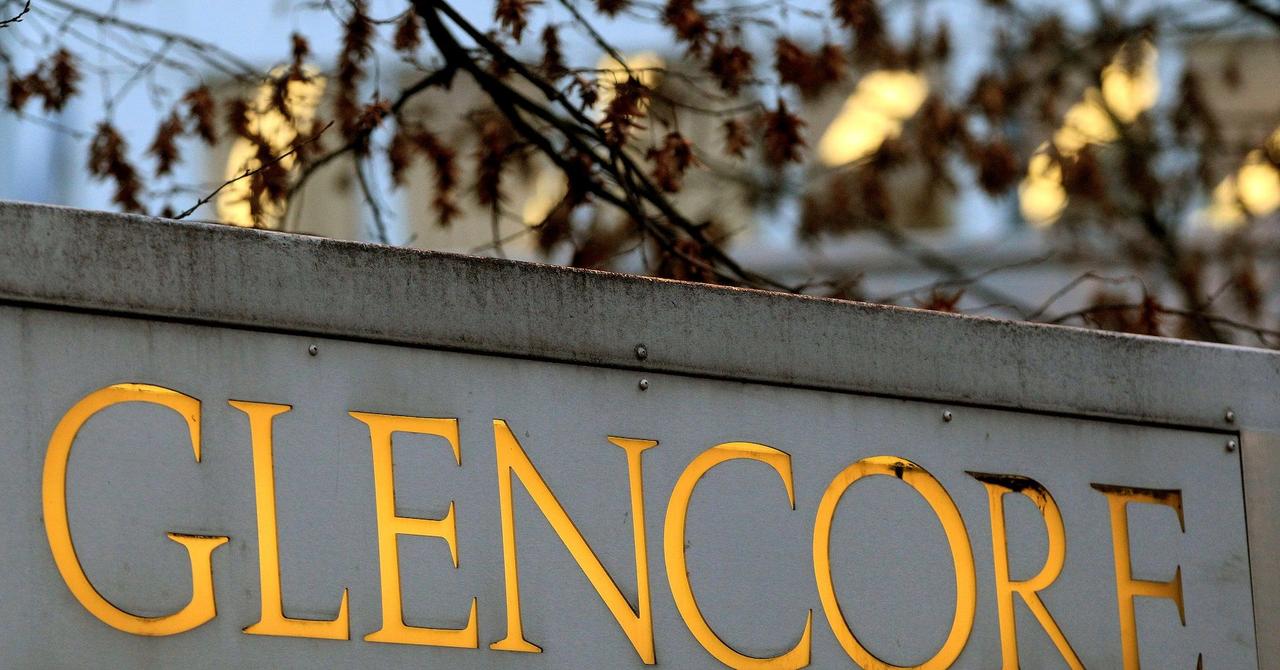Former Glencore Recycling Head Launches Innovative Critical Minerals Processing Startup
2 Sources
2 Sources
[1]
Glencore's former head of recycling launches critical minerals processing firm
Sept 8 (Reuters) - The former head of Glencore's (GLEN.L), opens new tab recycling business is launching a U.S.-based metals processing company with the goal of lowering the cost and time to refine copper and other critical minerals. The move comes amid increased pressure on industry from Washington and other governments for better processing options to boost the supply of minerals for artificial intelligence computer servers, weapons and other electronics. The U.S. processes very few critical minerals. China is the top processor of many. Kunal Sinha left Glencore last Friday after nearly 14 years in various roles, most recently as head of the recycling division. On Monday, he formed the New York-based processing startup Valor with technology developed by the University of Illinois at Urbana-Champaign. Valor's technology uses ligands -- a type of molecule -- to bind to a metal when placed in a solution and an electric current is applied. For instance, the ligand could be programmed to bind to copper or rare earths and not nickel. The technology can in theory be used to extract a range of metals from hard rock mines, recycled batteries or deep-sea nodules, and it could be at least ten times cheaper and faster than traditional processing methods without producing any waste, Sinha said, although it needs to be tested on a larger scale. Sinha said he left Glencore partly drawn by the appeal of starting his own company. "There is a lot of value to be created by improving (minerals) processing in the West," said Sinha, 44, who is also an advisor to rare earth magnet startup REalloys and an investor in magnesium processing startup Magrathea. The company is launching a fundraising push with the goal of developing a demonstration plant in Massachusetts or New York. Full commercial production of at least five metals is expected within two to three years, Sinha said. Glencore declined to comment. Reporting by Ernest Scheyder Editing by Marguerita Choy Our Standards: The Thomson Reuters Trust Principles., opens new tab * Suggested Topics: * Business * Exploration & Production Ernest Scheyder Thomson Reuters Ernest Scheyder is a senior correspondent covering critical minerals and the global energy transition, as well as the author of "The War Below: Lithium, Copper, and the Global Battle to Power our Lives," which was longlisted for the 2024 National Book Award and was named the American Energy Society's Energy Book of the Year. He previously wrote about the U.S. shale revolution - drawing on a two-year stint based in oil-rich North Dakota - as well as politics and the environment. A native of Maine, Scheyder is a graduate of the University of Maine - where he was named a distinguished alumnus in 2021 - and Columbia Journalism School.
[2]
Glencore's former head of recycling launches critical minerals processing firm
(Reuters) -The former head of Glencore's recycling business is launching a U.S.-based metals processing company with the goal of lowering the cost and time to refine copper and other critical minerals. The move comes amid increased pressure on industry from Washington and other governments for better processing options to boost the supply of minerals for artificial intelligence computer servers, weapons and other electronics. The U.S. processes very few critical minerals. China is the top processor of many. Kunal Sinha left Glencore last Friday after nearly 14 years in various roles, most recently as head of the recycling division. On Monday, he formed the New York-based processing startup Valor with technology developed by the University of Illinois at Urbana-Champaign. Valor's technology uses ligands -- a type of molecule -- to bind to a metal when placed in a solution and an electric current is applied. For instance, the ligand could be programmed to bind to copper or rare earths and not nickel. The technology can in theory be used to extract a range of metals from hard rock mines, recycled batteries or deep-sea nodules, and it could be at least ten times cheaper and faster than traditional processing methods without producing any waste, Sinha said, although it needs to be tested on a larger scale. Sinha said he left Glencore partly drawn by the appeal of starting his own company. "There is a lot of value to be created by improving (minerals) processing in the West," said Sinha, 44, who is also an advisor to rare earth magnet startup REalloys and an investor in magnesium processing startup Magrathea. The company is launching a fundraising push with the goal of developing a demonstration plant in Massachusetts or New York. Full commercial production of at least five metals is expected within two to three years, Sinha said. (Reporting by Ernest ScheyderEditing by Marguerita Choy)
Share
Share
Copy Link
Kunal Sinha, ex-head of Glencore's recycling division, has founded Valor, a U.S.-based startup aiming to revolutionize critical minerals processing with novel technology.
Former Glencore Executive Launches Innovative Minerals Processing Startup
Kunal Sinha, the former head of Glencore's recycling business, has embarked on a new venture that could potentially transform the critical minerals processing industry. On Monday, Sinha launched Valor, a U.S.-based metals processing company, with the ambitious goal of significantly reducing both the cost and time required to refine copper and other critical minerals
1
2
.
Source: Reuters
Addressing a Critical Need
The launch of Valor comes at a crucial time when there is mounting pressure from Washington and other governments to enhance processing options for critical minerals. These minerals are essential components in the production of artificial intelligence computer servers, weapons, and various electronic devices. Currently, the United States processes very few critical minerals, with China dominating the processing landscape for many of these crucial resources
1
2
.Innovative Technology at the Core
Valor's competitive edge lies in its innovative technology, developed in collaboration with the University of Illinois at Urbana-Champaign. The process utilizes ligands, a type of molecule, which can be programmed to bind with specific metals when placed in a solution and subjected to an electric current. This selective binding capability allows for targeted extraction of desired metals such as copper or rare earths
1
2
.Potential Game-Changer in Mineral Processing
According to Sinha, Valor's technology has the potential to extract a wide range of metals from various sources, including hard rock mines, recycled batteries, and even deep-sea nodules. The company claims that their method could be at least ten times cheaper and faster than traditional processing techniques, with the added benefit of producing no waste. However, Sinha acknowledges that the technology still needs to be tested on a larger scale to prove its efficacy
1
2
.Strategic Move in a Competitive Landscape
Sinha's decision to leave Glencore after nearly 14 years was partly motivated by the appeal of entrepreneurship. "There is a lot of value to be created by improving (minerals) processing in the West," said the 44-year-old executive, who also serves as an advisor to rare earth magnet startup REalloys and has invested in magnesium processing startup Magrathea
1
2
.Related Stories
Future Plans and Funding
Valor is currently initiating a fundraising campaign with the goal of developing a demonstration plant in either Massachusetts or New York. The company has set an ambitious timeline, aiming for full commercial production of at least five metals within the next two to three years
1
2
.Implications for the Industry
The launch of Valor and its potentially disruptive technology could have far-reaching implications for the critical minerals industry. If successful, it could help address the current processing bottleneck, reduce dependency on foreign processors, and potentially reshape the global supply chain for these essential materials
1
2
.As the world increasingly relies on advanced technologies that require these critical minerals, innovations in processing methods like those proposed by Valor could play a crucial role in ensuring a stable and efficient supply for years to come.
References
Summarized by
Navi
Related Stories
AI and Innovation Revolutionize Mining Industry to Meet Copper Demand
29 Aug 2025•Technology

Pentagon's AI Metals Program Goes Private to Boost Western Critical Mineral Supply
01 May 2025•Business and Economy

Oklahoma Emerges as Unexpected Hub for Critical Minerals Processing in U.S.
18 Jun 2025•Business and Economy

Recent Highlights
1
ByteDance's Seedance 2.0 AI video generator triggers copyright infringement battle with Hollywood
Policy and Regulation

2
Demis Hassabis predicts AGI in 5-8 years, sees new golden era transforming medicine and science
Technology

3
Nvidia and Meta forge massive chip deal as computing power demands reshape AI infrastructure
Technology





